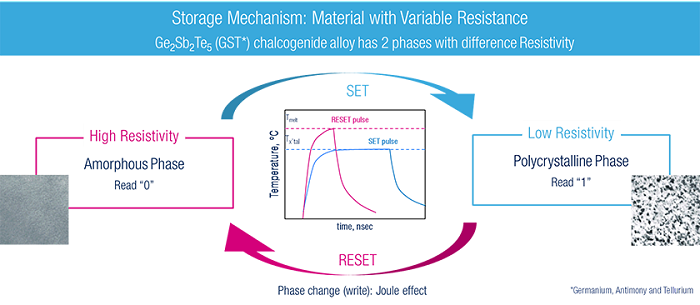By Alex Pluemer, contributing writer
STMicroelectronics said that it is the first semiconductor provider to combine embedded phase-change memory (ePCM) with 28-nm FD-SOI technology in automotive microcontrollers (MCUs). The new MCUs featuring ePCM will target automobile applications like advanced driver assistance systems (ADAS) and safety systems as well as powertrain systems, secure gateways, and vehicle electrification.
As automotive applications become more complex, they need more memory and greater processing power to function. Larger embedded memories are required to satisfy the needs of applications that take up more design space and feature more complex firmware than ever before.

ST believes that ePCM is an optimal solution to these design challenges. “Having applied ST’s process, design, technology, and application expertise to ePCM, we’ve developed an innovative recipe that makes ST the very first to combine this non-volatile memory with 28-nm FD-SOI for high-performance, low-power automotive microcontrollers,” according to Marco Monti, president of the Automotive and Discrete Group at STMicroelectronics. “With samples already in some lead customers’ hands, we’re confirming the outstanding temperature performance of ePCM and its ability to meet all automotive standards, further assuring our confidence in its market adoption and success.”
PCM technology is made from a germanium antimony tellurium alloy that “takes advantage of rapid heat-controlled changes in the material’s physical property between amorphous and crystalline states,” said ST. The material exhibits high electrical resistance in its amorphous state and low resistance in its crystalline state.
In contrast to flash-based memories, ePCM reads and writes at a low voltage and doesn’t require a byte- or sector-erase cycle before it can be reprogrammed, delivering single-bit alterability to ease software handling of data storage.
ST’s PCM technology has been tested to operate within automotive requirements for high-temperature operation, radiation hardening, and data retention. ePCM operates in temperatures of up to 165°C and meets all AEC-Q100 Grade 0 automotive requirements.
Products based on ePCM are sampling to alpha customers. Field trials with full technology qualification are expected in 2020.
Advertisement
Learn more about STMicroelectronics





